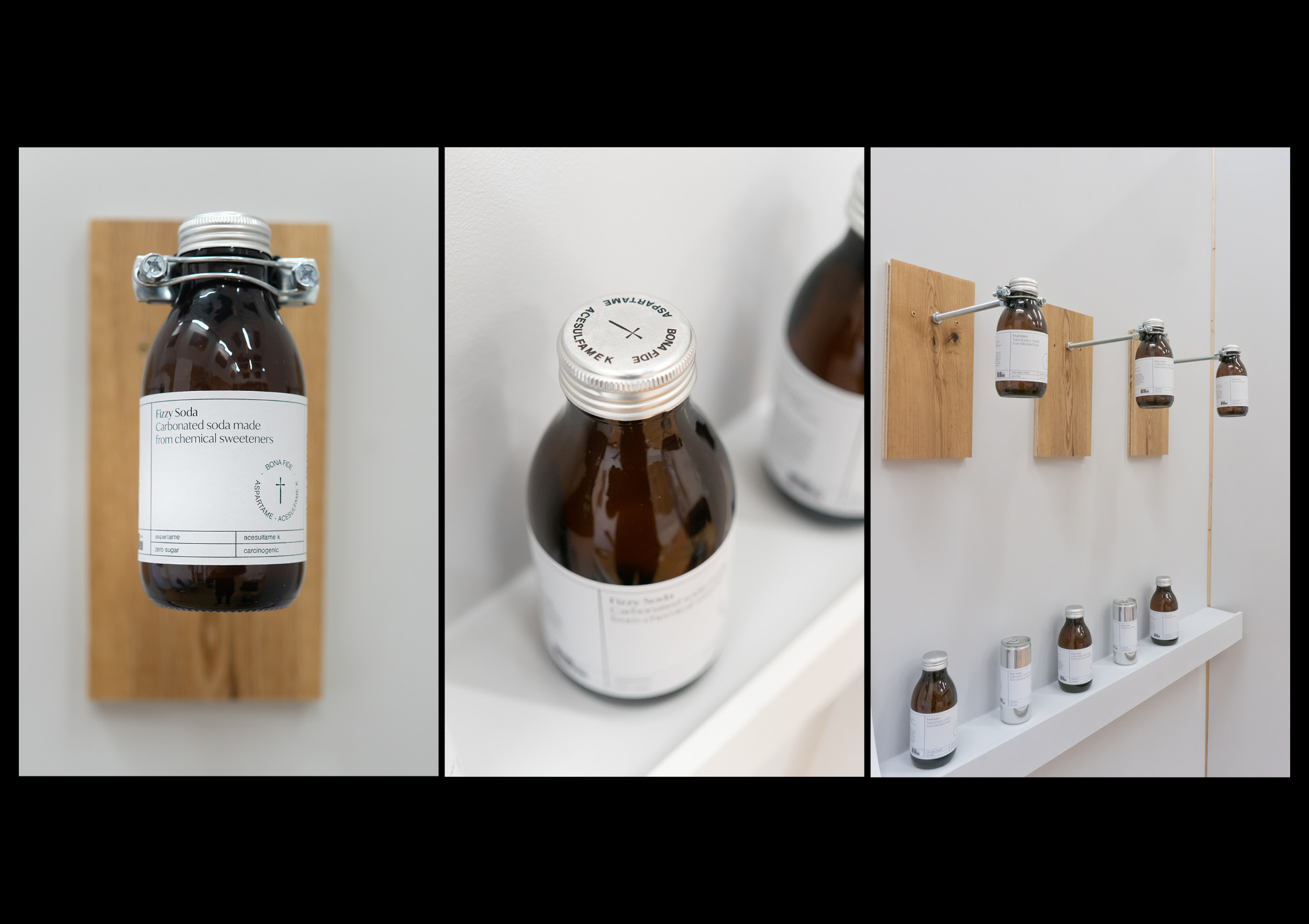










The focus of this project is to investigate society’s current desire for authenticity in the food we consume, authenticity is defined as the quality of being real or true. With the introduction of the Sugar Tax legislation, artificial sweeteners have become the norm in our favourite soft-drinks. However this does not make them any healthier. This identity sets out to clearly establish the relationship between design, ethics, health and pretence. This project analysed the design and discourse that make a product seem more ‘authentic’ or ‘healthy’. The design is a proposal to ’white label’ drinks, similar to the tobacco industrys recent design legislation. It was inspired from 1960’s medicinal labelling, where the contents and effects are simply stated on the label.
The implication of these findings, suggest that we as consumers need to become more aware of what we chose to believe on food packaging. ‘Healthy’ and ‘Healthier’ are not the same thing. Modern brands utilise health washing, to make us believe that they are. Our growing desire for authenticity leaves us open to exploitation through design. As with all good design, we are often unaware of the effects.
The implication of these findings, suggest that we as consumers need to become more aware of what we chose to believe on food packaging. ‘Healthy’ and ‘Healthier’ are not the same thing. Modern brands utilise health washing, to make us believe that they are. Our growing desire for authenticity leaves us open to exploitation through design. As with all good design, we are often unaware of the effects.